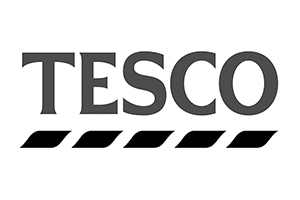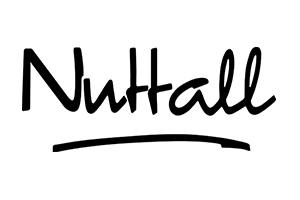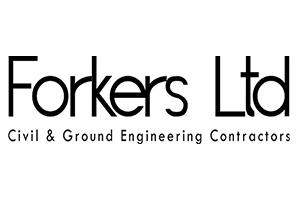Construction, Design, Surveying and Planning T Level Level 3
in Modern Methods of Construction
Construction, Design, Surveying and Planning T Level Level 3

Duration
2 years
Cost
Please see Student Finance page for further details.
Delivery Location
IoT Dudley
Delivery Partners
Dudley CollegeDelivery Model
Full time
Entry Requirements
Learners on this T Level will have already achieved their Maths and English at grade 4 as a minimum.
Occupational Profile
Students who pass all the elements of their T Level will get a nationally recognised certificate showing an overall grade of pass, merit or distinction. It will also set out the details of what students have achieved on the course.
The T Level certificate will include:
•An overall pass grade for the T Level, shown as pass, merit or distinction
•A separate grade for the occupational specialism, shown as pass, merit or distinction
•A separate grade for the core component, using A* to E
•Details of the industry placement
Tasks will be set and briefs given for each of the occupational specialisms:
1.Civil Engineering, Building Services Engineering Design
2.Surveying and Design in Construction
3.Hazardous Materials Analysis
4.Surveying
Students will be given a work related problem to solve, where knowledge, understanding, skills and behaviours are drawn together. The brief will require the student to analyse set of variables provided in context to the occupational specialism; research of a local environment, design a workable solution to the problem and verification of the solution with the client. Students will need to be observed operating safely when carrying out some tasks.
Training and Development Summary
T Levels are new course, which follow GCSEs and are equivalent to 3 A Levels. These 2-year courses have been developed in collaboration with employers and businesses so that the content meets the needs of industry and prepares students for work.
T Levels will offer students a mixture of classroom learning and ‘on-the-job’ experience during an industry placement of at least 45 days. They will provide the knowledge and experience needed to open the door into skilled employment, further study or a higher apprenticeship.
The T Level Technical Qualification in Construction: Design, Surveying and Planning has two mandatory components:
1. Core Component in Construction: Design, Surveying and Planning
This component covers the underpinning knowledge, concepts and skills that support threshold competence in the construction industry. It has 600 GLH and is assessed by two externally set Core Examinations and an Employer Set Project.
Occupational Specialist Components in Surveying and design for construction and the built environment.
T Level courses will include the following compulsory elements:
•Technical qualification, which will include •core theory, concepts and skills for an industry area
•Specialist skills and knowledge for an occupation or career
•Industry placement with an employer
Every T Level will include an industry placement with an employer focused on developing the practical and technical skills required for the occupation. These will last a minimum of 45 working days but can last longer. Employers can offer industry placements as a block, day release or a mix of these.
Providers will support employers offering industry placements. This will include assistance with the necessary paperwork, a careful planning process and support with designing the industry placement.
The Education and Skills Funding Agency (ESFA) and National Apprenticeship Service (part of ESFA) will work with employers and providers on industry placements.
Every T Level will include an industry placement with an employer focused on developing the practical and technical skills required for the occupation. These will last a minimum of 45 working days but can last longer. Employers can offer industry placements as a block, day release or a mix of these.
Professional Recognition and Career Progression
Students undertaking this Technical Qualification will be 16-18 years old and in full-time education. They will have chosen a T Level as an alternative to A Levels, Applied Generals or an Apprenticeship.
The typical student will likely have:
– A clear idea as to the industry sector they wish to pursue as a career
– An idea of the type of job role they’d like to explore as a career
– Taken an active choice not to pursue an Apprenticeship (either due to lack of availability or the wish to remain in full-time education).
This Technical Qualification is intended for students who want to progress to a career in the construction sector, with a focus on surveying and design, civil engineering, building services design or hazardous materials surveying. Job roles could include:
– Surveying Technician
– Civil Engineering Design Technician
– Digital Engineering Technician
– Civil Engineering Technician
– Building Services Engineering Design Technician
– Architectural Technician
– Asbestos Analysis Surveyor
– Construction Design Coordinator
– Transport Planning Technician
– Rail Engineering Design Technician.
The jobs available to students will be based on their individual abilities in the construction sector and will be supported by their achievement of this qualification.
Alternatively, students could progress sideways to Level 3 construction Apprenticeships to develop and gain certification of their occupational competence, or they could progress to higher level Apprenticeships such as:
– Level 4: Construction Site Engineering Technician, Construction Quantity Surveying Technician, Construction Design and Build Technician, Building Services Engineering Technician, Construction Site Supervisor, Acoustics Technician.
– Level 6: Building Control Surveyor, Building Services Design Engineer, Building Services Engineering Site Management, Chartered Surveyor, Civil Engineer, Civil Engineering Site Management, Construction Quantity Surveyor, Construction Site Manager, Design and Construction Management, Architectural Assistant.
Where students do not have access to an Apprenticeship or would prefer a more academic route, they could progress to relevant HNC or HND programmes or digital degree programmes such as Civil Engineering, Construction Management, Construction Surveying, Building Services Engineering, Construction Design and Architecture.
Students should always check the entry requirements for each degree programme with the relevant higher-education provider.
Share this:
Here are just some of the employers we work with:







